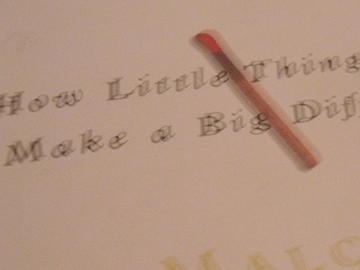A Tipping Point in Internet Plagiarism Awareness
We may not be able to (or need to) point to any particular time period as the inception of Internet plagiarism; however, we can examine when scholarly attention began to be paid to the issue. Howard and co-author Missy Watson (2010) have noted in a review essay that most articles and monographs in the field of composition on the subject of plagiarism can be traced back to a particular turning point: 1992. The authors noted that, assuming 1966 as the beginning of the field, only five articles from 1966 to 1991 dealt extensively with plagiarism, whereas from 1992-1993, nine articles on plagiarism were published and the pace has thereafter steadily increased (pp. 116-117).
Outside our field, one of the foremost researchers on academic integrity in higher education, Donald L. McCabe, first turned his attention to cheating in college in 1992. Prior to 1992, McCabe, an associate professor of organizational management at Rutgers, focused his research on organizational decision-making, strategic models, and economic performance. But with the publication of his 1992 article “The Influence of Situational Ethics on Cheating among College Students” in Sociological Inquiry, his research has since focused almost exclusively on honor codes, ethical decision-making, and academic dishonesty. In response to McCabe’s work and the beginning of Internet plagiarism-focused literacy crises, the Center for Academic Integrity (today the International Center for Academic Integrity) was formed in 1992 with McCabe as president and twenty-four charter member institutions committed to “promoting and fostering the ideals of academic integrity and sharing and learning from other equally committed institutions” (“ICAI Timeline,” n.d.).
 Clearly, 1992 was a pivotal moment in the history of research on academic integrity, a moment Malcolm Gladwell (2000) might term a tipping point. This heightened interest in academic integrity and plagiarism roughly coincides with the emergence of the World Wide Web as a communication space available to anyone with Internet access, and as interest in the Web grew, interest in potential misappropriation of those texts grew as well.
Clearly, 1992 was a pivotal moment in the history of research on academic integrity, a moment Malcolm Gladwell (2000) might term a tipping point. This heightened interest in academic integrity and plagiarism roughly coincides with the emergence of the World Wide Web as a communication space available to anyone with Internet access, and as interest in the Web grew, interest in potential misappropriation of those texts grew as well.
Within the classroom, as the ability to easily locate, read, and copy from online sources grew, instructors may have paid greater attention to students' use of sources and may have more frequently assigned papers that required the use of multiple kinds of sources, including those that could be found online. Again, the cyclical nature of attention can be noted: The Web makes drawing from sources easier, therefore writing instructors begin focusing on students' abilities to draw from sources. That focus then narrowed to examining whether or not students were drawing from sources in ways that aligned with institutional understandings of appropriate citation practices. Trimbur (1991) noted that when literacy was presented as in crisis, the conversation emphasized structural changes in the balance of power, refiguring them as problems focused on learning how to read and write (p. 286). The combined force of the World Wide Web and word processing also affected the balance of power in the classroom, further refiguring the problem as not simply learning how to read and write one's own work, but as learning how to read source materials, incorporate them into one's own writing, and attend to dictates regarding the responsible use of source materials.
Thus in 1992, while scholarly research on Internet plagiarism was newly gripping the field of rhetoric and composition, Tim Berners-Lee was working on the creation of the World Wide Web; in January 1993, the Mosaic browser was released, bringing access to the Web to greater numbers of individuals than ever before. Word processing was becoming more commonplace in the composition classroom and the subfield of computers and composition began imagining how new media such as hypertext and the World Wide Web would change how we write. A convergence of factors ripe for ushering in the burgeoning anxieties regarding the impact of these new composing practices and spaces on academic integrity had aligned.
index ![]()
![]() the specter of internet plagiarism
the specter of internet plagiarism ![]()
![]() the turn to turnitin.com page 1
the turn to turnitin.com page 1 ![]() page 2
page 2 ![]() page 3
page 3 ![]() page 4
page 4 ![]() page 5
page 5 ![]() page 6
page 6 ![]()
![]() authorship and anxiety page 1
authorship and anxiety page 1 ![]() page 2
page 2 ![]() page 3
page 3 ![]() page 4
page 4 ![]() page 5
page 5 ![]() page 6
page 6 ![]()
![]() critical assessment
critical assessment ![]()
![]() references
references

